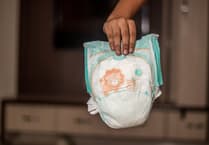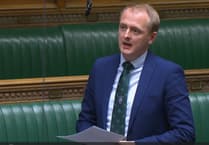THE NSPCC has launched a new campaign to keep children safe after new research shows that thousands of sexual offences were recorded in Wales over the last year.
New figures compiled by the NSPCC reveal that child sexual offences recorded by police over the past year remain close to record levels.
The Freedom of Information data totalled 86,962 child sexual offences recorded by police across the UK in 2022/23, which remains one of the highest on record since starting the annual research 16 years ago.
Types of offences included rape, sexual assault, sexual grooming and sexual exploitation.
The majority of crimes where age was known were perpetrated against 11 to 15-year-olds.
In Wales, 4,671 offences were recorded by police forces in 2022/23.
This includes 838 in the Dyfed Powys Police region and 1,096 in the North Wales Police area.

This comes as the NSPCC launches a new campaign in partnership with the Home Office to tackle child sexual abuse.
Together they are encouraging the public to contact the charity’s Helpline if they are concerned that a child could be at risk. The partnership will also encourage people to report on instances where there are concerns that a child might be experiencing sexual abuse.
The Home Office is providing funding for the NSPCC Helpline to increase capacity as well as to raise awareness of the service to the public and professionals.
The NSPCC has also created two films promoting the new campaign.
These films show how adults can use the Helpline to share any concerns they may have about a child’s safety or welfare. One of these films is tailored to professionals, and the other reaches out to the general public.
The NSPCC Helpline is the charity’s free advice line for any adult who may have concerns about a child, including professionals who work with children. The Helpline’s dedicated child protection specialists can advise on a wide range of issues. Adults can contact the Helpline for guidance and support on issues affecting children, as well as for cases of suspected child abuse.
This new campaign follows a final report released in October 2022 by IICSA (the Independent Inquiry into Child Sexual Abuse). Over seven years, IICSA received evidence and testimonies from thousands of victims and survivors, resulting in a comprehensive set of recommendations which addressed endemic child sexual abuse.
This report found that child sexual abuse and exploitation had been, and remains, under-reported.
In the 12 months following the IICSA report, the Helpline was contacted the equivalent of once every hour with concerns from adults about children being sexually abused.
One parent from Wales told Helpline*: “My child is being groomed online and I need to make it stop. They’ve been sending naked pictures of themselves online in exchange for money.
“They think it’s ok because they’re 17 but I know they’re being exploited. They won’t listen to our worries, what’s the best action to take?”
The NSPCC also operates a dedicated Whistleblowing Helpline, which can be contacted for any concerns around child protection issues within the workplace, or other professional organisations.
Childline, the charity’s free child counselling service, also hears directly from children on the impact sexual abuse can have on their lives.
One girl, aged 15 from Wales, told Childline: “Last night, I was at a friend’s house, we were all drinking, and this guy kissed me really hard and put his hands under my clothes.
“I didn’t want him too at all, but he kept going. I was crying when my dad picked me up.
“I tried to explain what happened, but he got angry and said that’s what happens when girls do silly things at parties. I don’t think that’s true, I think it was assault.”
The NSPCC is calling on the general public, including those who work with children, to use the Helpline to express any concerns they may have regarding a child, even if they are not certain. In doing this, every person can play a part in keeping children safe from sexual abuse.
Kam Thandi, Helpline Director at the NSPCC, said: “The high numbers of child sexual offences being reported by police forces across the UK are a warning to us all that more must be done to tackle this abuse.
“This new Helpline campaign, in partnership with the Home Office, will encourage the general public and professionals to reach out with concerns about child sexual abuse. All of us must play our part in protecting children.
“The Helpline deals with concerns, no matter how big or small, and we’re encouraging adults to contact us. What is shared could be life-changing for a child experiencing sexual abuse.”
The Minister for Victims and Safeguarding, Laura Farris MP, said:
“The protection of children is a collective effort. Every adult must be supported to call out child sexual abuse without fear.
“That’s why we’re supporting the NSPCC and their Helpline, to protect children and bring offenders to justice.
“I am committed to stamping out child sexual abuse, which is why we’ve also pledged to introduce mandatory reporting and set up a task force to clamp down on grooming gangs.”
Any adults concerned about a child’s safety or wellbeing can contact the NSPCC Helpline at [email protected] or by calling 0808 800 5000. Children can contact Childline on 0800 1111 or childline.org.uk.
People should always contact 999 if they suspect a child is in immediate danger.




